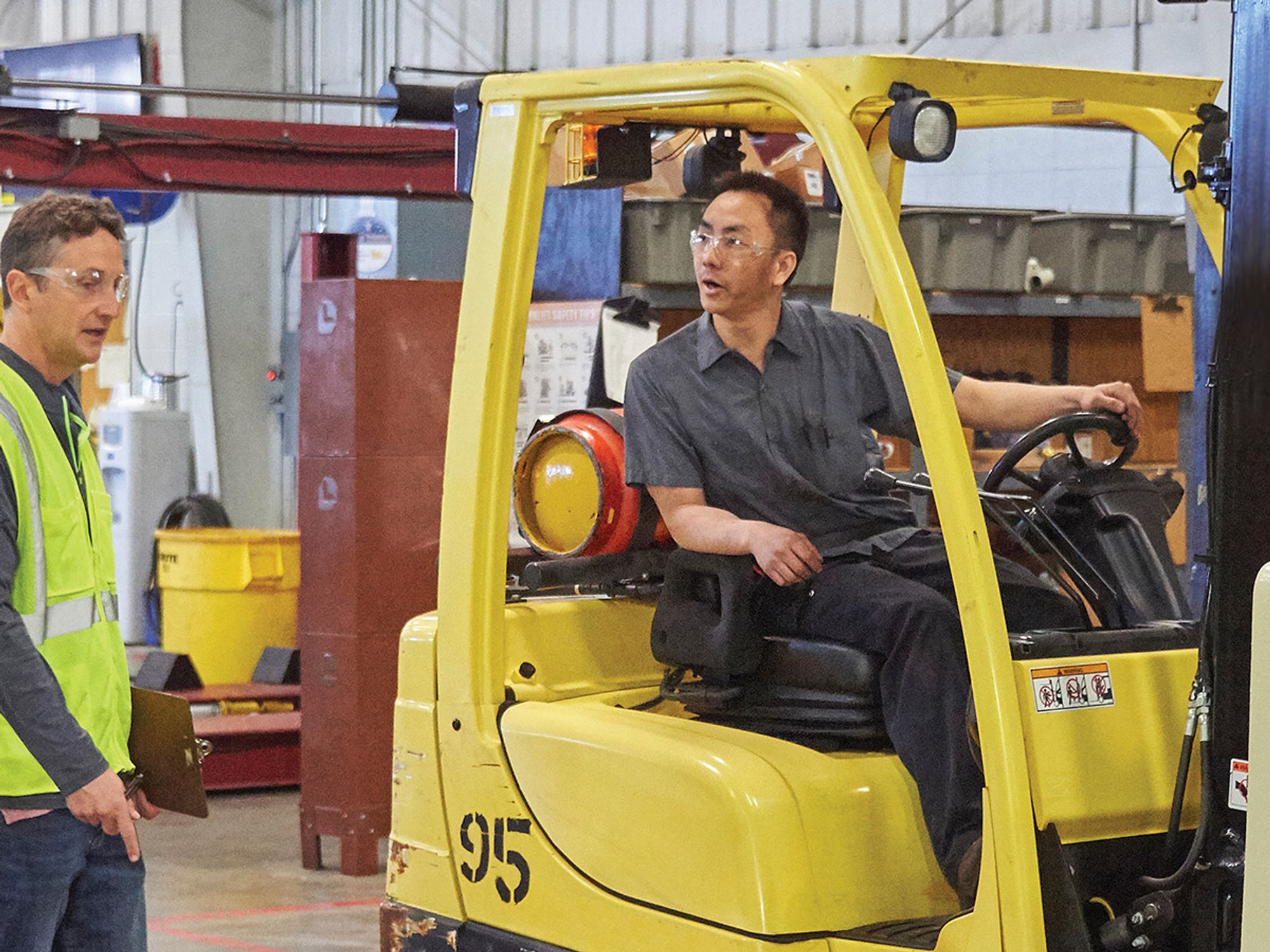What are the training requirements?

- OSHA does not have specific requirements or certifications for trainers of PIT operators, other than that they must possess the “knowledge, training, and experience” to train and evaluate operators.
- PIT operators must have their performance evaluated initially and every three years and participate in refresher training when needed.
Failure to train and evaluate a Powered Industrial Truck (PIT) operator is a top serious OSHA violation for the PITs standard, so that means Occupational Safety and Health Administration (OSHA) officers will likely be checking to see that proper training has been completed in any facility with PIT operations, and failure to train PIT operators can lead to hefty OSHA penalties.
OSHA has specific requirements for PIT operator training. These requirements include who can train operators, the frequency at which they should be trained, the content of the trainings, and more specific requirements based on the type of truck and workplace.
Who can train?
OSHA requires that trainers have the “knowledge, training, and experience” to train operators and evaluate their competence. The OSHA standard does not further define this requirement or set any specific certifications.
However, for PIT operators that are temporary employees, OSHA’s Temporary Worker Initiative (TWI) Bulletin No. 7 explains that the staffing agency is responsible for generic PIT training, and the host employer provides the necessary site-specific PIT training and evaluation. That’s because the host employer is most familiar with the equipment being used and controls the conditions of the worksite.
Frequency
While forklift training is not required annually, OSHA does require an evaluation of each PIT operator’s performance at least once every three years.
In addition, refresher training must be provided when:
- The operator has been observed to operate the vehicle in an unsafe manner.
- The operator has been involved in an accident or a near-miss incident.
- The operator has received an evaluation that reveals that they are not operating the truck safely.
- The operator is assigned to drive a different type of truck.
- A condition in the workplace changes in a manner that could affect safe operation of the truck.
Content
PIT operators must receive a combination of the following types of training:
- Formal instruction, such as: lecture, discussion, interactive computer learning, video, and/or written material.
- Practical training, including: demonstrations performed by the trainer, and practical exercises performed by the trainee.
- Evaluation of the operator’s performance in the workplace.
